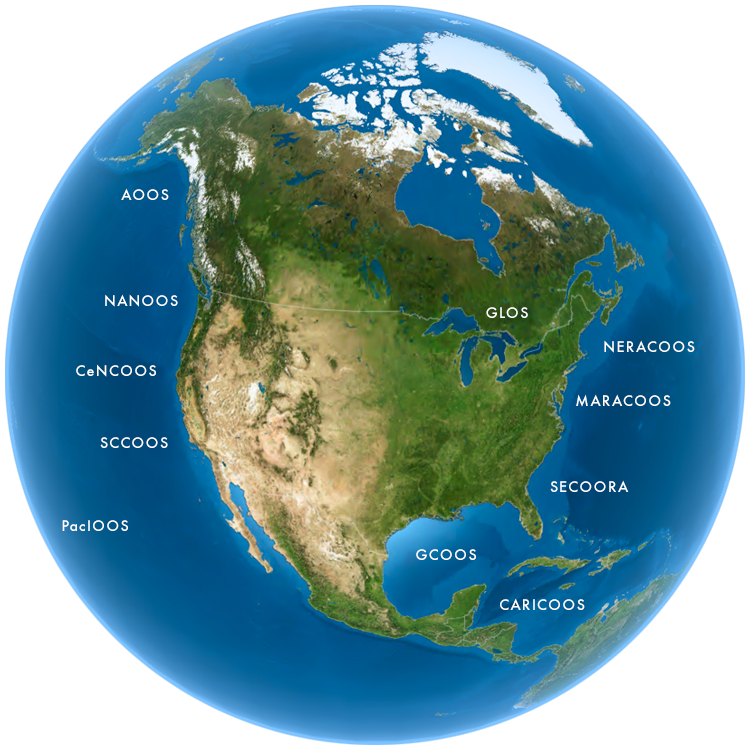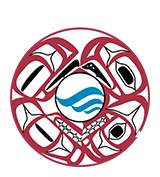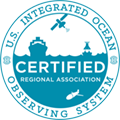The Integrated Ocean Observing System (IOOS®) is a partnership among federal, regional, academic and private sector parties that works to provide new tools and forecasts to improve safety, enhance the economy, and protect our environment.
Integrated Ocean Observing System (IOOS®)
IOOS supplies critical information about our Nation’s oceans, coasts, and Great Lakes. Scientists working to understand climate change, governments adapting to changes in the Arctic, municipalities monitoring local water quality, and industries affected by coastal and marine spatial planning all have the same need: reliable, timely, and sustained access to data and information that inform decision making.
Improving access to key marine data and information supports several purposes. IOOS data sustain national defense, marine commerce and navigation safety. Scientists use these data to issue weather, climate and marine forecasts. IOOS data are also used to make decisions for energy siting and production, economic development, and ecosystem-based resource management. Emergency managers and health officials need IOOS information to make decisions about public safety. Teachers and government officials rely on IOOS data for public outreach, training and education.
The Integrated Ocean Observing System (IOOS) is a multidisciplinary system designed to enhance our ability to collect, deliver, and use ocean information. The goal is to provide continuous data on our open oceans, coastal waters, and Great Lakes in the formats, rates, and scales required by scientists, managers, businesses, governments, and the public to support research and the decisions we need to make about our oceans and estuaries.
NOAA is leading the interagency and regional efforts to build the U.S. IOOS and has been participating in the development of the U.S. IOOS since the late 1990s when it first began. NOAA envisions a fully integrated ocean observing system that enables NOAA and its partners to provide services to the entire nation.
Ocean Observing Systems are the foundation upon which we need to apply ecosystem-based management of our oceans in an effort to turn the tide on the complicated challenges facing our oceans, rivers, and Great Lakes. The goals of an Integrated Ocean Observing System (IOOS) aim to:
- Improve the safety and efficiency of marine operations
- More effectively mitigate the effects of natural hazards
- Improve predictions of climate change and its effects on coastal populations
- Improve national security
- Reduce public health risks
- More effectively protect and restore healthy coastal marine ecosystems
- Enable the sustained use of marine resources
Ultimately, IOOS data is used to make important decisions that affect coastal communities and our nation as a whole. These decisions include the location of the safest and most efficient shipping routes for the products we need, beach and shellfish closures, fisheries catch limits, and evacuations.
IOOS Regions

The IOOS Association is a non-profit organization formed by the eleven Regional Associations for Coastal and Ocean Observing in support of the Integrated Ocean Observing System (IOOS). IOOS Association works with the Regional Associations, the U.S. IOOS Program Office in NOAA, and other IOOS partners and supporters to address the nation’s need for coastal observing and information. The IOOS regions are as follows:
- |
Alaska Ocean Observing System |
|
- |
Caribbean Coastal Ocean Observing System |
|
- |
Central & Northern California Ocean Observing System |
|
- |
Gulf of Mexico Coastal Ocean Observing System |
|
- |
Great Lakes Observing System |
|
- |
Mid-Atlantic Coastal Ocean Observing System |
|
- |
Northwest Association of Networked Ocean Observing Systems |
|
- |
Northeastern Regional Association of Coastal Ocean Observing Systems |
|
- |
Pacific Islands Ocean Observing System |
|
- |
Southern California Coastal Ocean Observing System |
|
- |
Southeast Coastal Ocean Observing Regional Association |
For further details go to: ioos.noaa.gov

